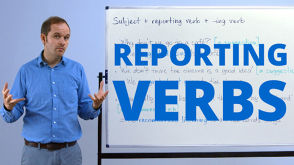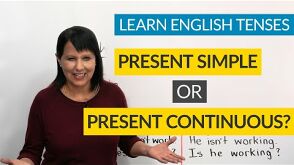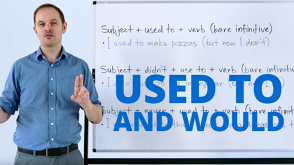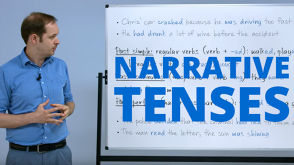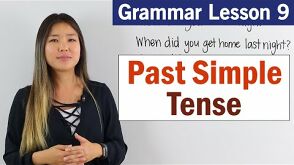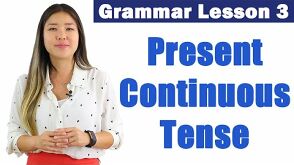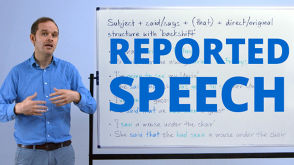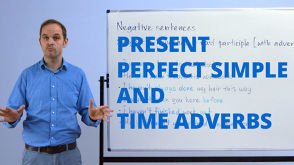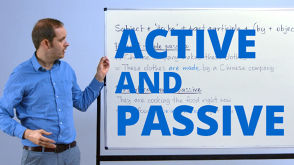Learn real English from movies and books.
Add words or phrases for learning and practice with other learners.
-
STEP 1Watch the video

-
STEP 2Do the exercises

-
STEP 3Add phrases you like to Favorites

Future Plans
- 00:00 / 00:00
Click on a word or highlight a phrase to see translation
Click on a word or highlight a phrase to see translation
Click "plus" to add word/phrase for learning
Click "plus" to add word/phrase for learning
Start learning
Start learning
‘Will' and ‘won't' to describe plans/intentions
There are a number of ways to describe the future in English. The most commonly used form is ‘will'. Will is used to when we are predicting what our future plans are when we are not really sure. The sentences below describe plans that can be changed quite easily.
Subject + will/won't + bare infinitive + object:
-
I think I will go to the party
-
I'm sure I will see you there
-
I think I won't go I'm too tired
Using ‘definitely' and ‘probably'
To make the sentences stronger in terms of certainty, we can add ‘definitely' and ‘probably'. Definitely is the stronger of the two. Note the change in word order in the negative sentences.
Subject + will + definitely/probably + bare infinitive + object:
-
I'll definitely see you later (very, very certain)
-
I'll probably see you later (very certain)
Subject + will + definitely/probably + bare infinitive + object:
-
I definitely won't go on a date with you! (no chance)
- I probably won't go for a drink with you (less chance)
Using "might" to describe future plans/intentions
Stronger in terms of certainty, than ‘might' or ‘will' is ‘going to'. We use ‘going to' when we have decided on a plan for the future recently or we have thought about these plans for some time. With ‘going to' the plans could still change because of an unexpected problem, for example.
Subject + ‘to be' + going to + verb + object
-
I am going to go to the theatre on Friday
-
He's going to buy the tickets
-
She is going to see a doctor about her bad back
-
They are going to ask the boss for more money tonight
-
She isn't going to say anything
-
He isn't going to drink beer this week
Present continuous for future plans/intentions
When using the present continuous for future plans, it is important to think about the difference between a plan and an arrangement. In the future, plans change but an arrangement is difficult to change because an arrangement has people, tickets, times and places included so the people involved with an arrangement does not want to cancel at all.
Subject + ‘to be' + verb-ing + object
-
I'm meeting my mother in the city centre at 7.30 (can you cancel a meeting with your mother?)
-
We are watching the band tomorrow at the stadium (you have bought the tickets)
-
She's seeing him again tomorrow (she's not going to cancel)
Present simple for future events
If we talk about future events that include timetables or schedules like train times, office hours or lesson starts, for example, the present simple is used.
-
The plane arrives at 5:00
-
The lesson always starts at 19:30
Question forms for future plans/intentions
Remember, when answering questions about future plans use the structure that best describes the certainty of your actions. It is often easier to use ‘will' but using the other forms adds a lot of quality and detail to your English
-
Are you going to clean the fridge?
-
What are going to do tomorrow?
-
Will you turn the music off?
-
When will you send me an e-mail?
-
Are you doing anything special this Christmas?
-
Who are you meeting in the park later?
-
Does the train leave at 3 or 4?
Similar video exercises
Click on a word or highlight a phrase to see translation
Click on a word or highlight a phrase to see translation
Click "plus" to add word/phrase for learning
Click "plus" to add word/phrase for learning



